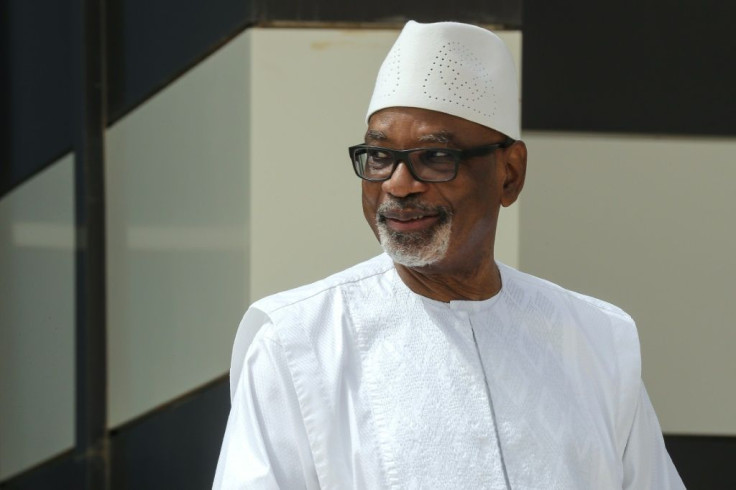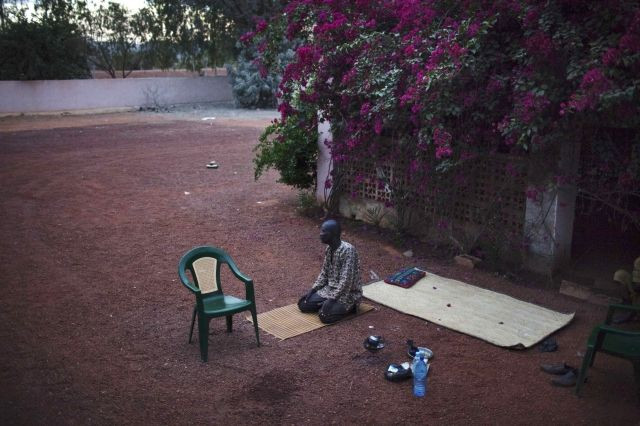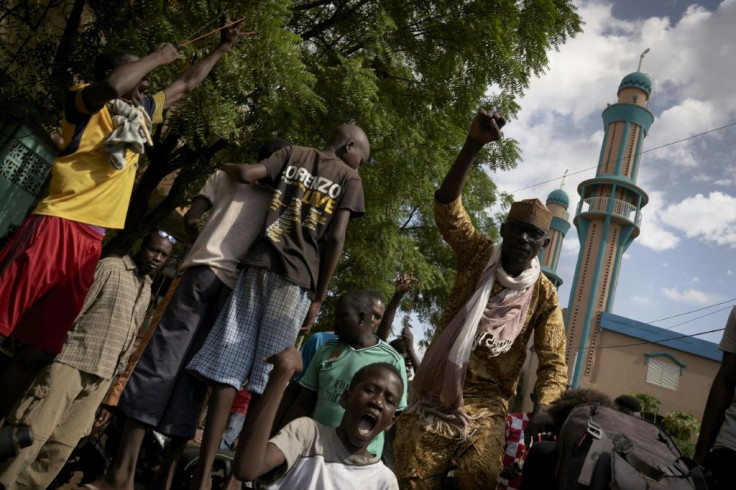Malian Opposition Calls Off High-risk Protest
The Malian opposition alliance that demands President Ibrahim Boubacar Keita step down has called off a high-risk protest, a spokesman said Wednesday.
Demonstrations had been set for Friday, but the so-called June 5 Movement decided to transform them into memorial services for victims killed in violence last week, the spokesman said.
Three days of clashes with the security forces left 11 dead and 158 injured, according to an official tally -- Mali's bloodiest toll from political unrest in years.

The news was announced as envoys from Mali's neighbours led by former Nigerian president Goodluck Jonathan arrived in Bamako to mediate the escalating political crisis.
Representatives from the 15-nation Economic Community of West African States (ECOWAS) are trying to bridge apparently irreconcilable differences between Keita and a protest movement that demands his resignation.
The June 5 Movement, an alliance of political, social and civil-society leaders gathered around a powerful imam named Mahmoud Dicko, is tapping into deep-seated anger.
Malians are worried and frustrated by an eight-year-old jihadist insurgency that has claimed thousands of lives, driven hundreds of thousands from their homes and swept into Niger and Burkina Faso.

In the latest violence that plagues the north and centre of the country, seven farmers were killed Tuesday by gunmen, the mayor of Sangha in central Mali told AFP.
Many Malians are also incensed at perceived government corruption and the outcome of long-delayed parliamentary elections in March and April that handed victory to Keita's party.
Tension was high as the opposition had planned a "ceremony of sacrifice and of prayer" for protest victims on Friday, but spokesman Ahmadou N'Dounga Maiga said in a statement that "commemorations" would instead take place in places of worship.
Opposition leader Mountaga Tall told reporters Tuesday: "We are convinced that President IBK has neither the intellectual nor the physical capacity to lead the country," referring to Keita by his initials.

Mali's international allies remain anxious, however, given the country's poverty, ethnic mix and strategic location at the heart of the Sahel region.
In a message issued by its embassy in Bamako, the United States urged all sides to show restraint and "commit to a rejection of any extra-constitutional changes of government".
It called on the security forces "to avoid the excessive use of force", and welcomed the arrival of the ECOWAS delegation.
Keita's office said the delegation would include constitutional experts.
A potential solution being explored is to appoint new judges to the Constitutional Court, a tribunal that is a major target of protest anger.
The court tossed out about 30 results from the elections in a decision that handed seats to members of Keita's party.
An ECOWAS mission to Mali last month concluded that the court's decision was "at the root of the tension" and called on the government to review the results or stage new elections as soon as possible.
It also called for a "consensus government of national union".
Keita has made several gestures toward the June 5 Movement, including the dissolution of the Constitutional Court to enable a U-turn on the contested seats.
© Copyright AFP 2024. All rights reserved.





















